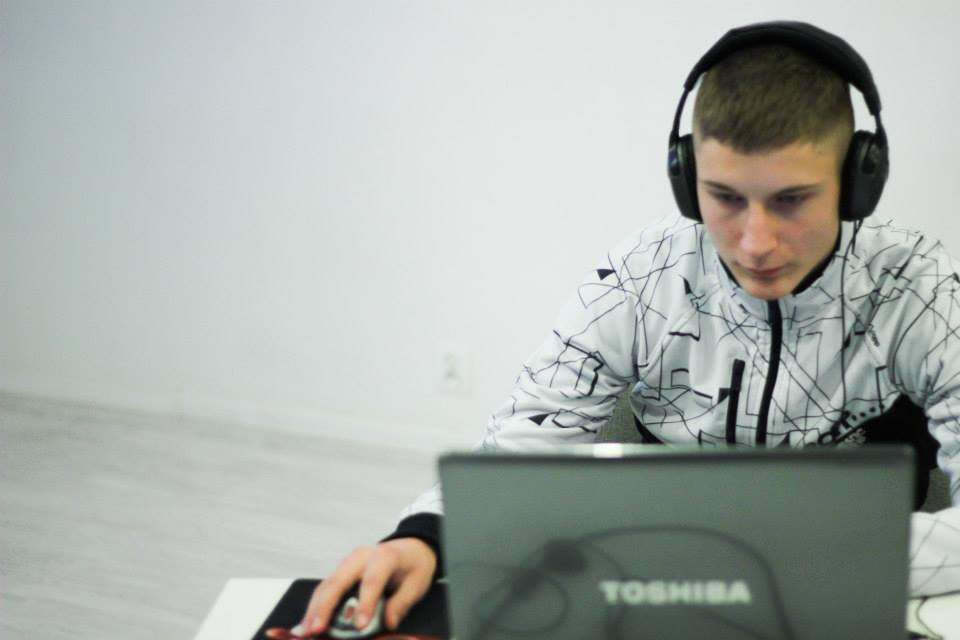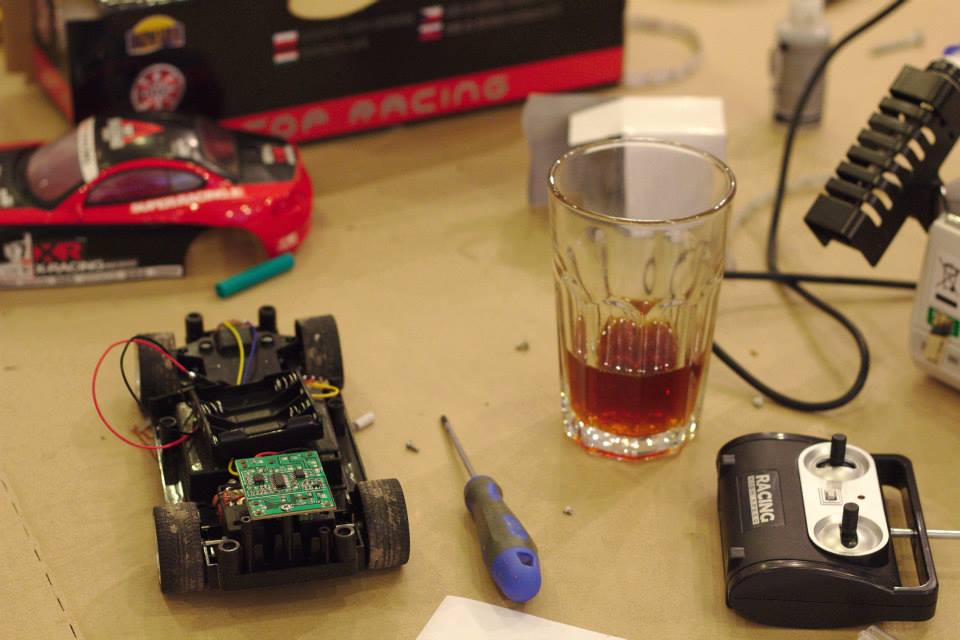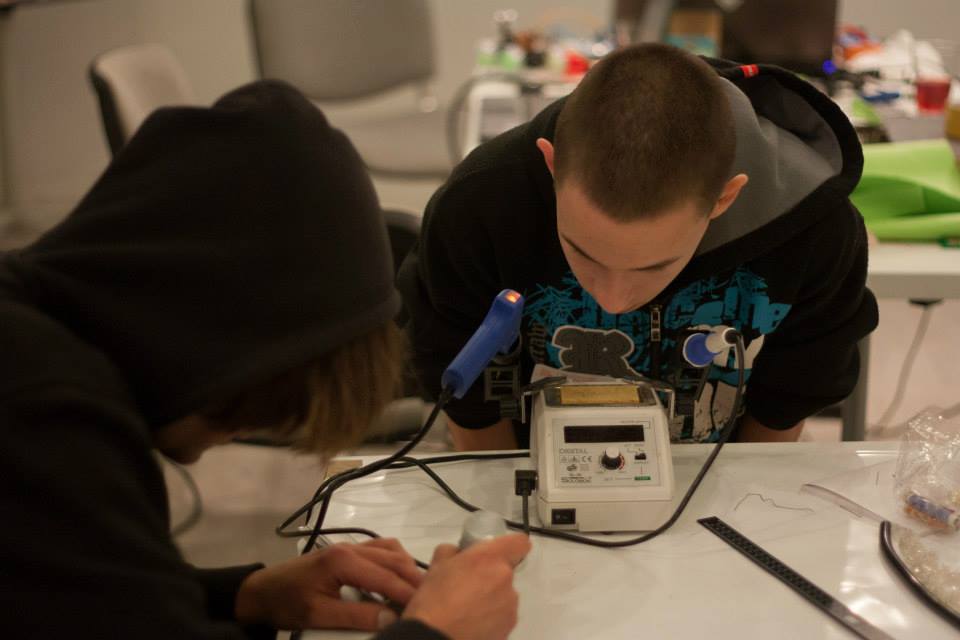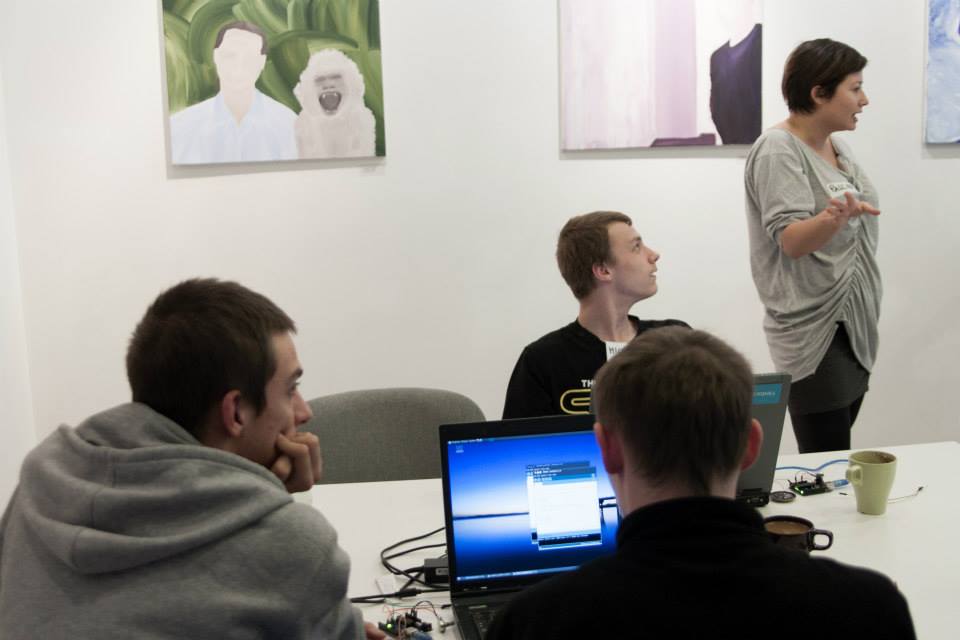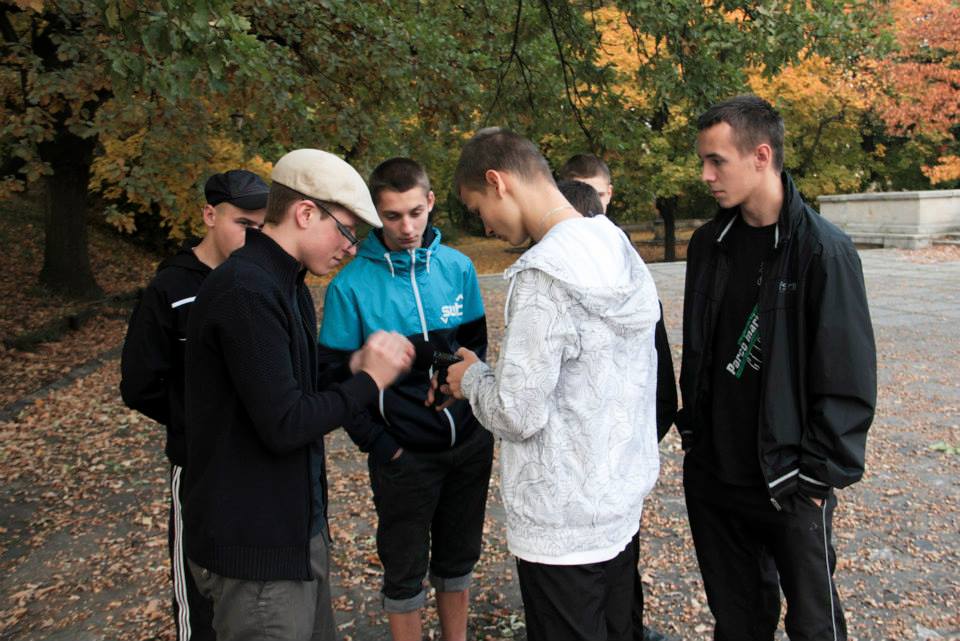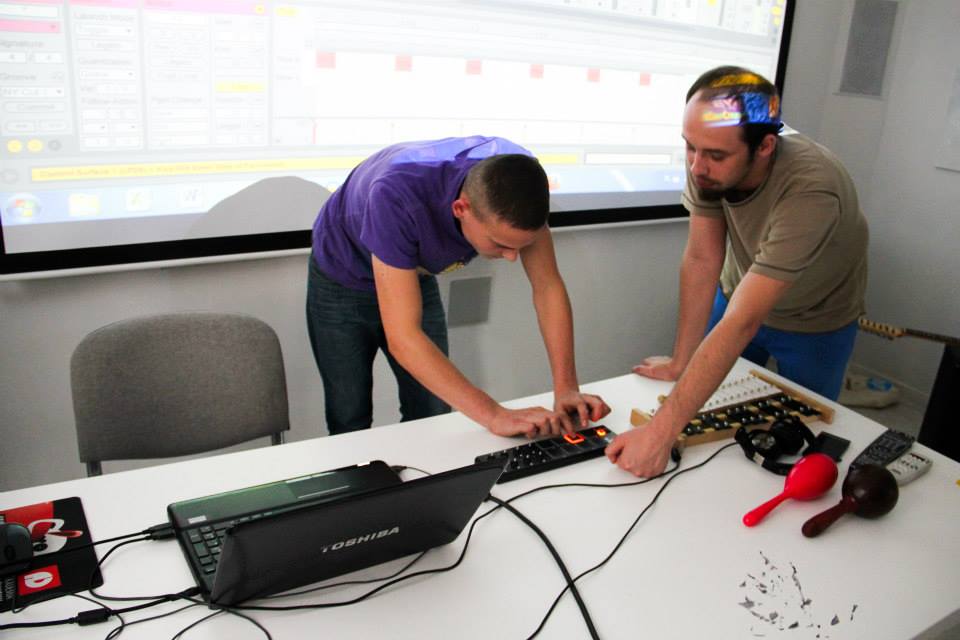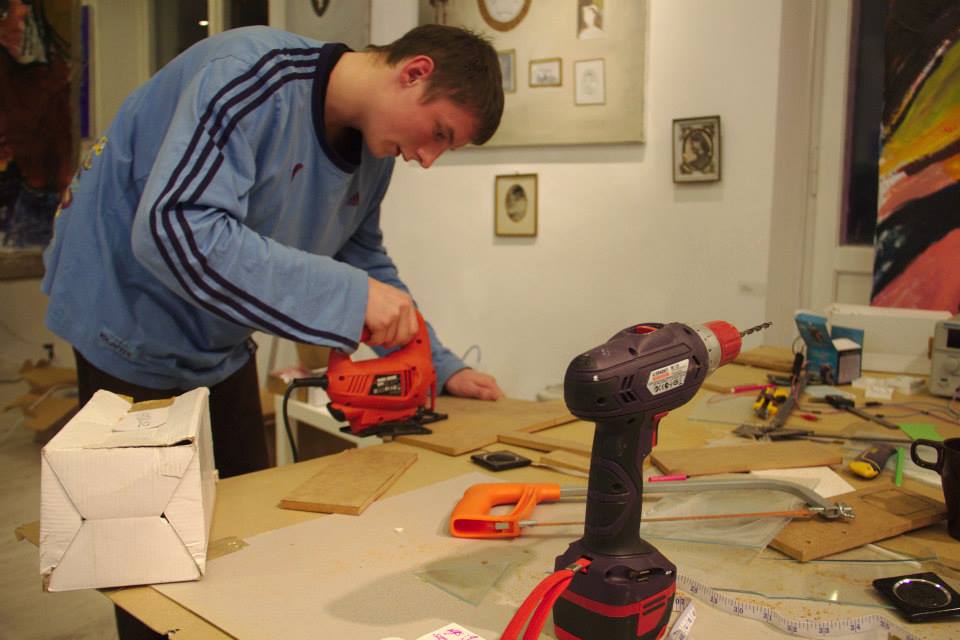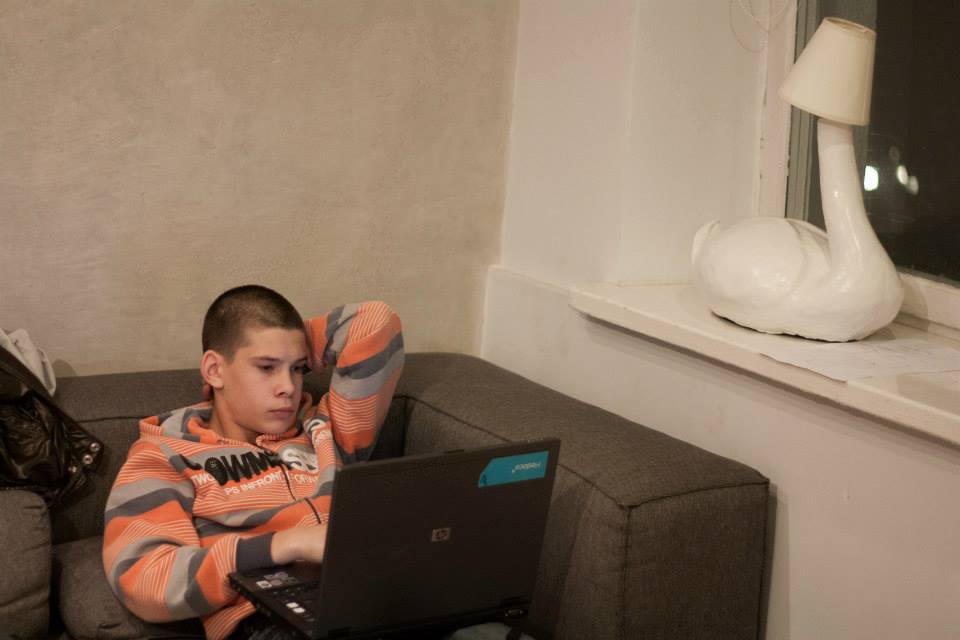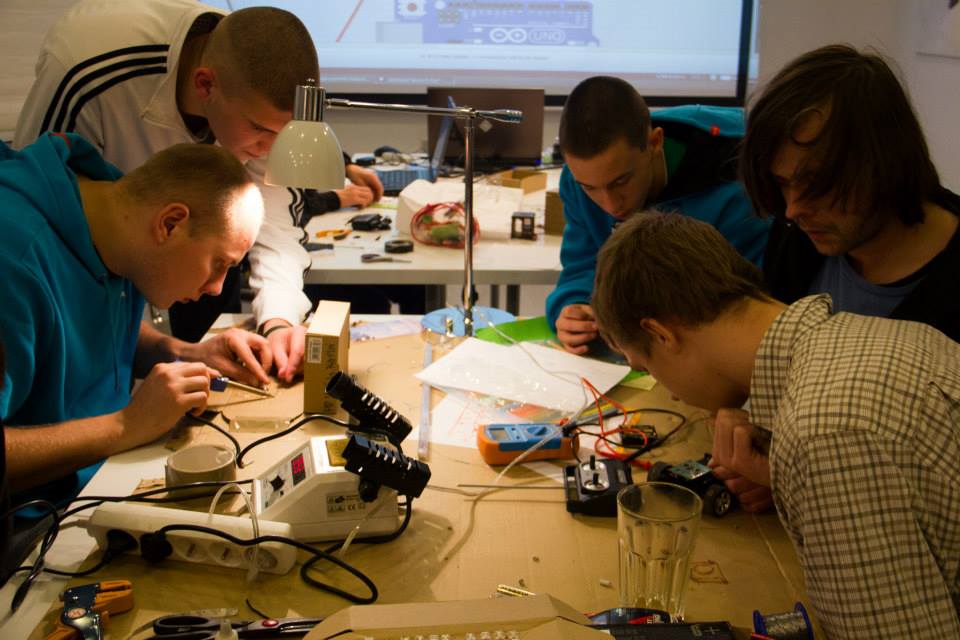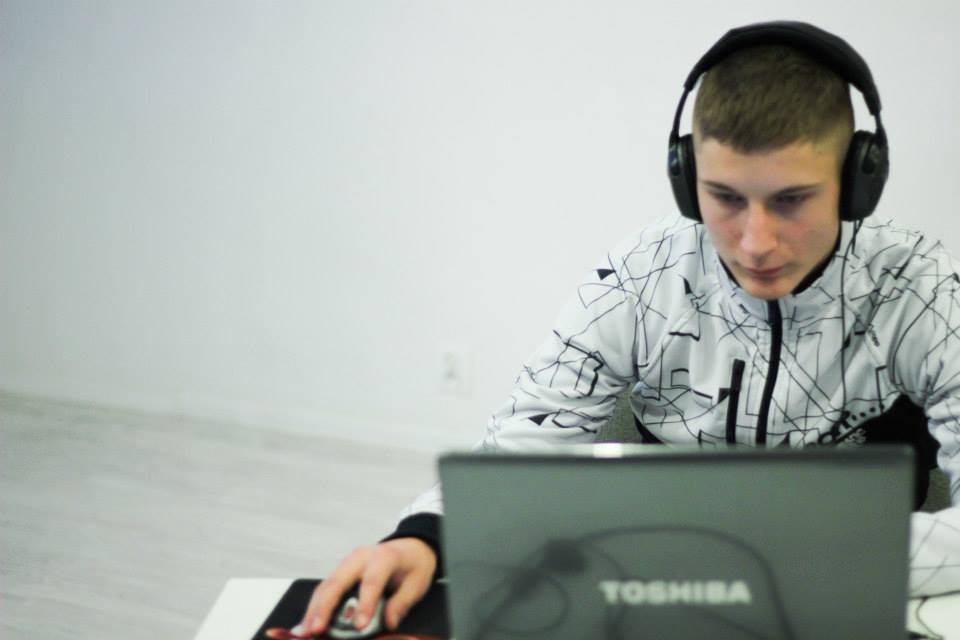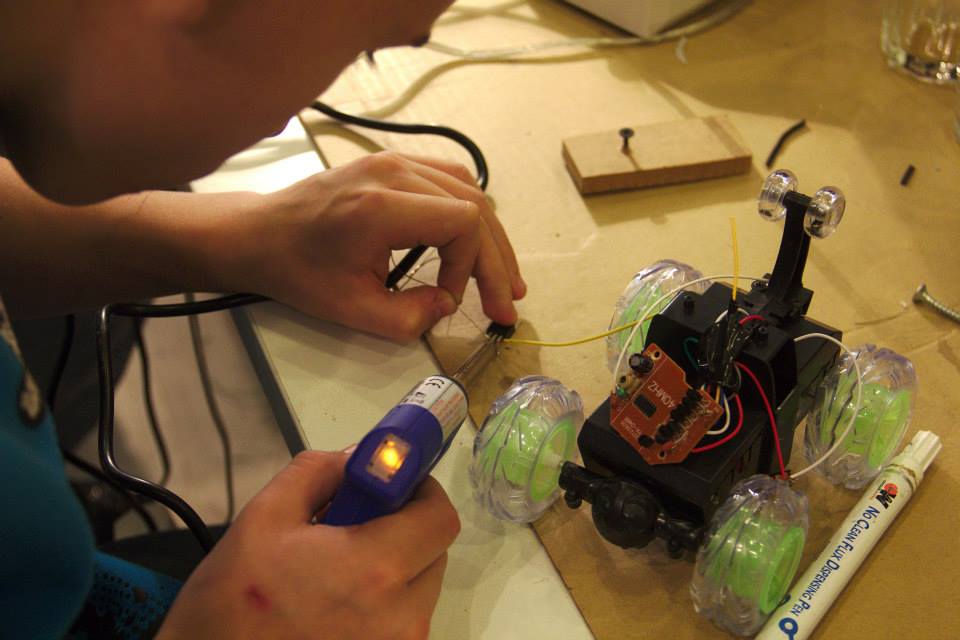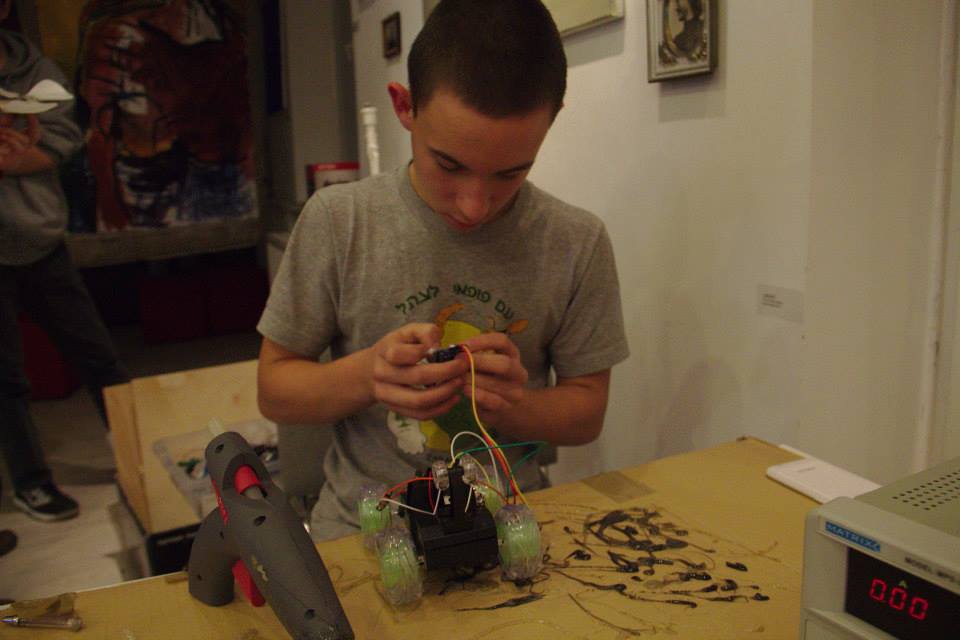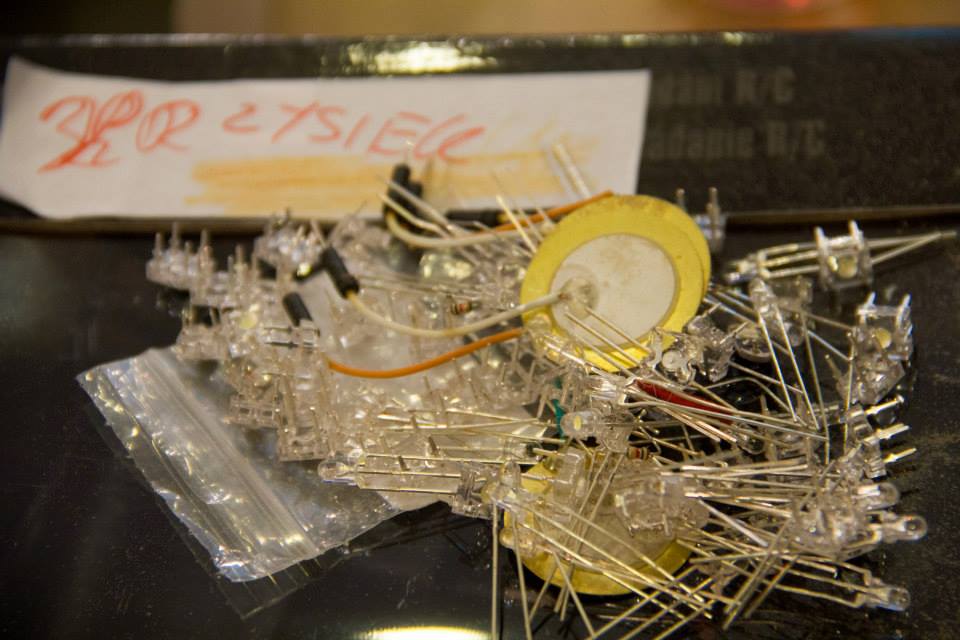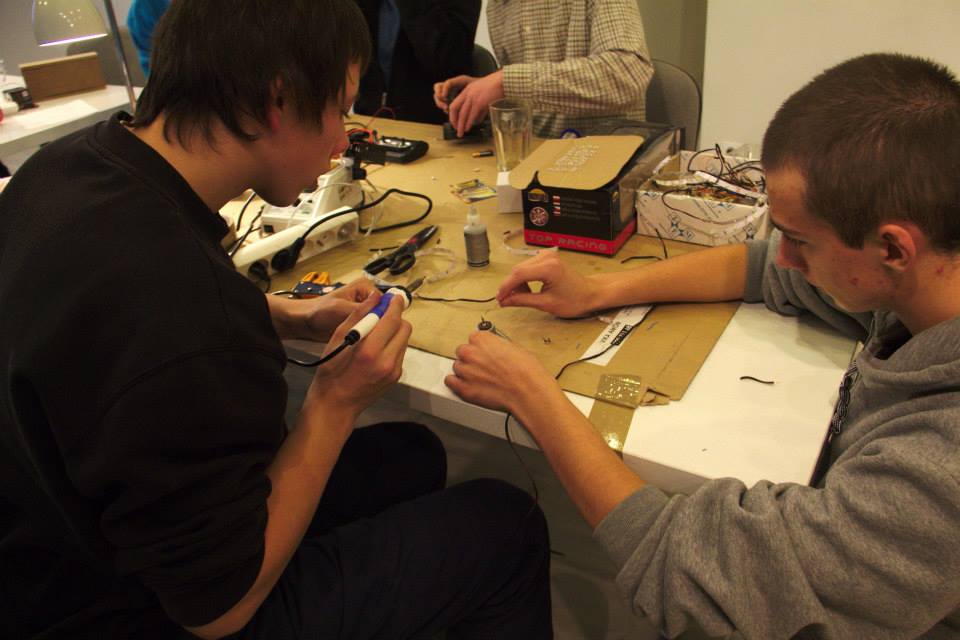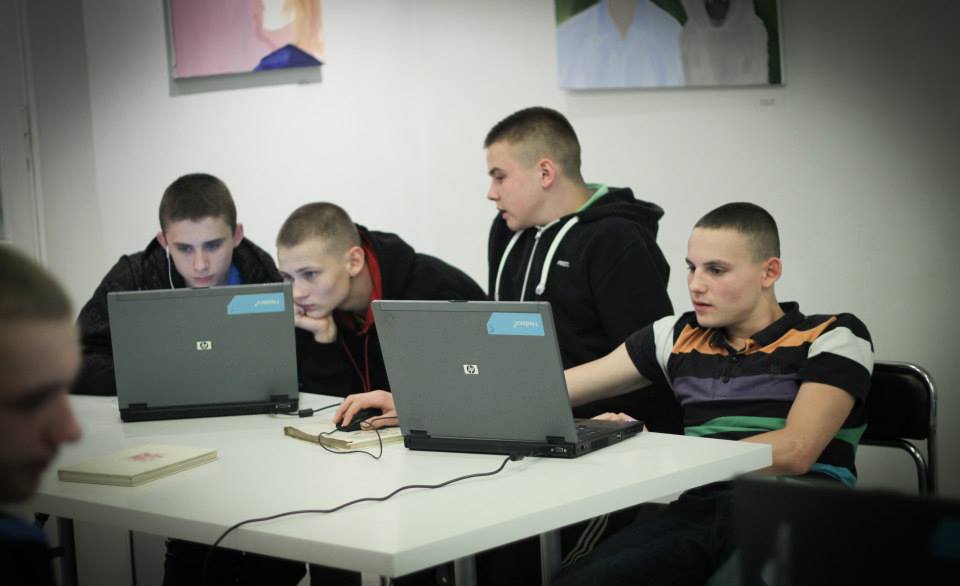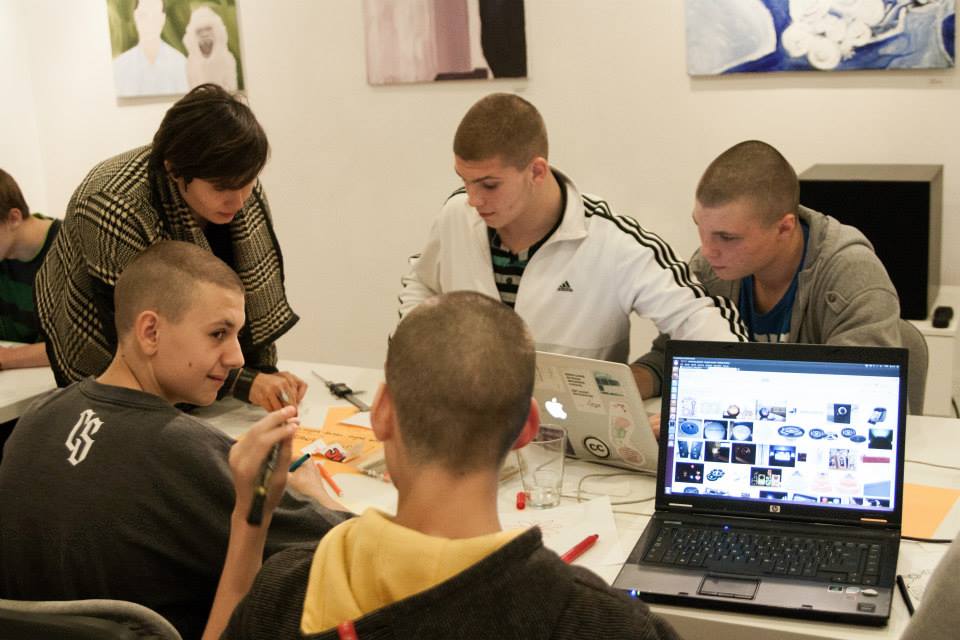Institution: Fundacja Culture Shock/ Culture Shock Foundation
Authors: Paulina Jędrzejewska, Aleksander Janas, Mateusz Telega, Paweł Sulewski Title: Media Lab Warszawa/Media Lab Warsaw
Topics: digital competences, programming, Arduino, Audiotool, sound, music, new technologies, open technologies
Realization: 8.08.2013 – 20.12.2013
Documentation:
Participants: youth aged 13-17 years old
- Project summary and innovation
“Media Lab Junior Warsaw” is a project, that included two di erent types of workshops aimed at youth. During the workshops, young people, by using open source softwares and new technologies, learned creative cooperation and gained knowledge and skills necessary to become active creators of culture.
Every workshop series consisted of six, 3 hour meetings and was conducted by two trainers – a specialist in the technology eld and an animator-teacher.
Basic digital competences become the one of the requirements of being active in nowadays culture. Changes in social communication models induced by digital development force people to use new technologies in everyday life. In traditionally understanding education is still lacking the space to present the foundations of functioning of new technologies, which is related to the pace of their development and changes. Young people usually use communication tools in a passive way, naturally acquiring elementary digital competence in practice, they move in the e- reality mainly as end-users of technology, most often, commercial. The “MediaLab Junior Warsaw” workshop met the needs of youth and created an educational situation in which participants learned how to consciously live in the digital world.
- Project civic engagement
Educational activities realized as a part of this project initiated changes in workshop participants’ behavior (overcoming the barriers, building self-con dence and faith in own abilities) and encouraged them to create cultural content. The workshops also contributed to reducing digital exclusion among young people.
The aim of the project was to make the participants of the workshop more visible in social and civic life, not only through the practice of intra-group cooperation, but also through the e ective realization of the over-the-target objective – to present Warsaw residents e ects of the “Media Lab” projects at the summing event. It was a space for exchanging knowledge, skills, and presenting to other participants in workshops of the product / activity itself.
- The most important ICT competencies of participants
The most important thing was the purchase by the participants:
- competences of actively creation of culture,
- learning about the possibilities of open software and new technologies,
- acquiring speci c skills : creating projects, programming, creating music.
- Workshop “Arduino, the creation of own smart electronic devices (8 meetings)
The workshop allowed to master:
- the fundamentals of electronics and microcontroller programming in a short time,
- gave the basis for knowledge about what how looks the interaction between electronics and human beings,
- workshops provided a solid foundation for further self-development.
- The aim of the workshop series was to familiarize youth with the general principles of interactive technologies and deepen understanding of the world
around us, - Purchase of knowledge and skills related to electronics devises and programming was an additional objective.
- Workshop “Field recording, sound design and sampling workshops, Hip- hop workshops” (6 meetings)
In the age of digital culture, the creator becomes the hostage of someone else’s logic. Most creators who use electronic media remain only users. That is why the workshops aimed to:
- familiarize participants with the possibilities of shaping sound material (sound creation and manipulation), tools for manipulation, and workshop design
- workshops showed the process of working on an interactive idea: paradigms and metaphors of interactivity, generative structures
- workshops should be considered as an introduction to: sound art, the application new technologies in music, audiovisual art and audio art, composing interactive audiovisual projects, sound design as an element of industrial design, sound design for urban space.
- How does the project developed media literacy of participants?
They acquired the skills to create projects using programming, electronics, recording their own sounds and their sound processing, by creating own small electric devices and sound design.
- Projects steps:
- 1. I Workshop “Arduino, the creation of own smart electronic devices” (8 meetings)
Youth learned the basic knowledge of electronics and then created their own electronic device. The most important values of the classes were not just the products themselves (glowing bracelet, ashing band, glowing belt, diode bag, baby carousel, etc.), but also the understanding by youth that the technology is not a magical world but an accessible sphere to which (if you wish) you can have access.
The Arduino is a workshop that allows to master the fundamentals of:
- electronics and microcontroller programming in a short time,
- giving a basic understanding of what interacting with a computer and electronics is.
- Their aim was to familiarize young people with the general principles of interactive technologies,
- to deepen their understanding of the world around them.
Arduino developed for educational purposes is used for programming, very popular in both technology and DIY circles. It consists of a microcontroller board and a simpli ed C programming language. The mobile-controlled cell, motion-responsive text, interactive games are examples of objects that can be created at the workshop.
- Topics of 8 meetings:
1.Basic principles of interaction, learn about the basics of devices on the example of devices
2. Sensors and actuators, analog and digital. Overview and practical exercises with the simplest sensors and actuators. Particular emphasis is placed on understanding the relationship between action, sensor, code, actuator and reaction.
3. GND, loop. Participants learn about the basic principles of the electrical circuit with which they practically worked on the previous classes.
4. Introduction to own projects. Participants have time to come up with their own projects, confront ideas with other participants and technical possibilities, create a description of the project and describe the operation of the device.
5-7. Works on individual projects. Participants work on their projects under the guidance of the leaders.
8. Programming and Summary. The equipment is programmed with the help of the instructor, according to the intention previously expressed by the participant in the project description. The nished designs are presented to all participants and discussed, from construction to detailed operating principles and code.
The workshop used the following tools:
- Arduino microcontroller
- C programming language.
- 2. II Workshop “Field recording, sound design and sampling workshops, Hip-hop workshops” (6 meetings)
During the series of workshops, young people learned, among others:
- what is digital music creation,
- basics of using Audacity to support this process,
- sampling technique – closely associated with hip-hop culture, as well as the basis of sound design.
Participants recorded the sounds of the city, took part in their editing and placed them in a musical context. Technique, simple and impressive, has proven that the sounds that have not been associated with the music of the past prove to be a great source of melody and rhythm. Those who participated in the workshop also had the opportunity to record sounds using traditional instruments (guitars, bass) and their own voice, using their own texts. Thanks to digital processing, the compositions could have been fresh and innovative.
- Topics of 6 meetings
- Introduction to computer-generated music and sound recording,
- Pass the knowledge and skills of computer music creation techniques
- Familiarize participants with the history and possibilities of modern music creation
- Familiarize participants with a program to create music called Audiotool
- Familiarize participants with the techniques of creating musical elements in Audiotool
- Completion of the original musical composition of the program Audiotool
In the workshops the following programs were used: Audacity and Audiotool, including:
- drum machines (Beatbox 8 and Beatbox 9)
- synthesizers (Pulverisateur and Tonematrix)
- audio e ects.
- Methods of the project
The methods that were used during the workshops:
- Hands-on education
- Methods of creative problem-solving,
- Teaching methods (talk, instruction)
- Brainstorm.
Scenarios of the “Medialab Junior Warsaw” workshops are available under Creative Commons licenses for multiple free use by all educational institutions or the youth concerned themselves, enabling young people to develop their media literacy skills.
